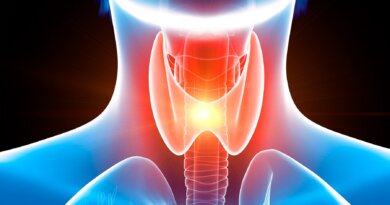Older Women and Eating Disorders: A Growing Problem
March 2, 2023 — As a veteran fitness assistant and trainer, Samantha Ward was well aware of the impact eating disorders can have on a woman’s health. Suddenly, though, the issue became personal.
“I developed an eating disorder later in life,” Ward says. “I was 55 years old when it started. I had never had one before.”
Ward was going through tremendous stress. “I believe that my eating disorder was a way to cope with a very difficult time in my life,” she says. “I had lost my job, my marriage was falling apart, and I was struggling with depression.”
Although eating disorders like binge eating, anorexia nervosa, and bulimia in older women are rarely discussed, they’re a prevalent and growing problem. A new study from Yale School of Medicine reports that almost 3% of U.S. women ages 50 to 64, and almost 2% of women 65 and older, have an eating disorder.
What’s more, a study published in the Journal of Eating Disorders found that roughly 26% of older female participants reported binge eating one or more times a week. Sometimes, medical conditions such as GI difficulties or dental problems can lead to an eating disorder, the researchers found, as can depression and dementia. The study’s authors also report, however, that menopause can be a time that leaves a woman more vulnerable to developing an eating disorder. Some women start dieting to stop hormonal weight gain, for example, and develop a distorted body image.
It’s very important that a later-life eating disorder be addressed as quickly as possible.
“Older adults may become frail more quickly, faster than younger individuals,” says Dorothea Vafiadis, director of the National Council on Aging’s Center for Healthy Aging.
“In older adults, body systems may not bounce back as quickly as they used to, so eating disorders resulting in rapid weight loss can create problems quickly.”
Research has shown that 21% of older adults with an eating disorder die of the condition. The first vital step to take: Recognize that emotions most often lie at the root of the problem.
Emotional Causes of Eating Disorders in Older Women?
According to the National Council on Aging, some people have a genetic predisposition to eating disorders. There are also three main patterns to eating disorders in older women. Some women will have struggled when they were younger, recover from their disorder, then relapse. Some women never recover and suffer to some degree for most of their lives. Other women, like Ward, develop a first-time eating disorder in response to environmental triggers.
“Stress and anxiety can occur for older women due to life changes – a female midlife crisis,” says Nancy Lee Zucker, PhD, professor of psychiatry, behavioral sciences, and neuroscience at Duke University School of Medicine in Durham, NC. “Some women use food intake and exercise to cope – they focus on self-improvement, initially. But then, their focus on food can become all-encompassing – it narrows their focus.”
Challenges such as divorce or widowhood, an empty nest, financial problems, or adjusting to retirement can set off this behavior.
A woman’s psychological mindset as a whole can also play a significant role.
“Individuals with certain personality traits may be more prone to eating disorders, such as those who have perfectionistic tendencies or obsessive impulses,” says Vafiadis.
Symptoms of an Eating Disorder in an Older Woman?
If a friend or loved one displays any of the following symptoms, she may need help:
- Appearing to feel guilty about food or eating
- Weight loss
- Eating by herself
- Acting secretive
- Exercising constantly
- Expressing being emotionally upset
- Oral health problems like jaw pain or dental problems
If you notice someone going to the bathroom after a meal, or complaining of stomach issues, she may be bingeing and purging. “Binge eating disorder has been shown to be more prevalent in older women,” Zucker says, although researchers are not sure why.
How to Treat Eating Disorders in Older Women?
The first step is compassionate outreach. If you suspect someone close to you is dealing with an eating disorder, you definitely want to offer help. Be gentle and respectful.
“Older women with eating disorders are often ashamed, so it can be hard for family and friends to bring up the subject,” says Zucker. “Instead, focus on the isolation you’ve noticed. You could say, ‘I’ve noticed you’re eating by yourself these days – you don’t want to go out to dinner anymore. You also sound a little down on yourself.’”
Offer to bring the person you care about to the doctor and tell her how much you care about her.
A full medical evaluation is extremely important.
“Older adults are commonly undiagnosed,” says Vafiadia. “Eating disorders in the elderly may not be the first diagnosis due to other health issues at play.”
Diagnosing any underlying medical condition that co-exists with an eating disorder is vital.
Depending upon the severity of a woman’s condition, inpatient treatment may be the right solution. Australian researchers reported that for adults over the age of 66, a combination of hospitalization, drug therapy, and psychotherapy led to improvement in almost 80% of surveyed patients. Cognitive behavioral therapy, family therapy, and nutritional counseling are all useful options. Medications to treat eating disorders may include Prozac or Vyvanse.
“The good news is, treatment can really help,” Zucker says.
Ward is in full agreement. “I’m currently in treatment,” she says. “I have a great therapist who’s helped me to get better.”
Most of all, Ward stresses that you should not try to handle things alone: “You need support to overcome an eating disorder.”


